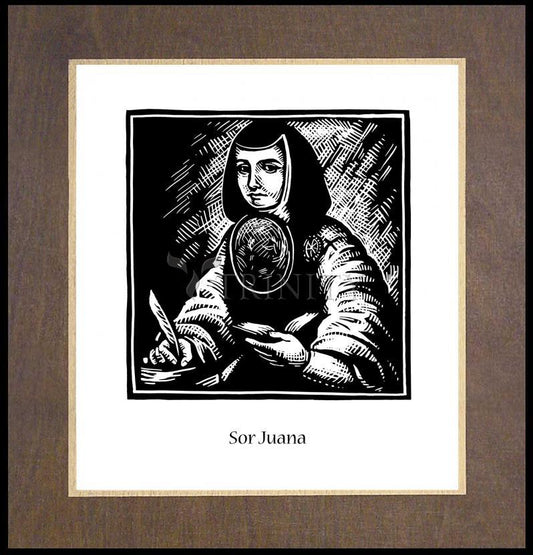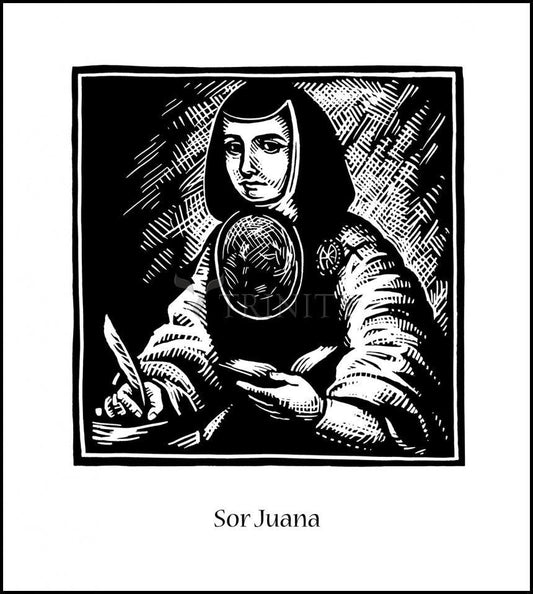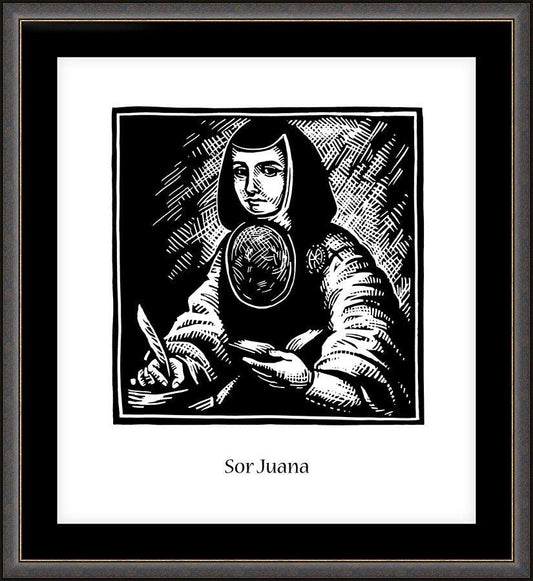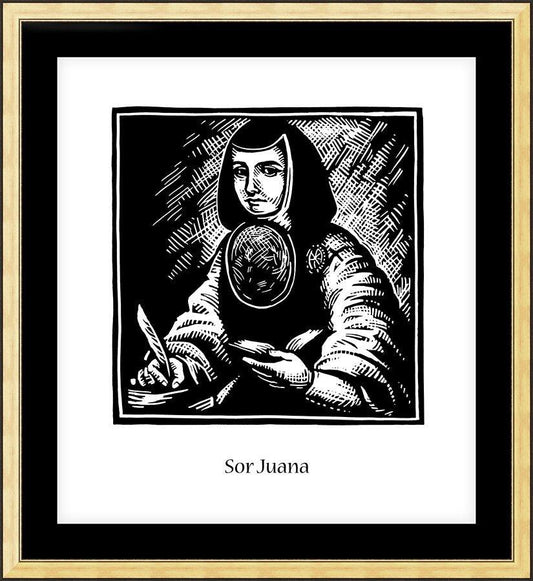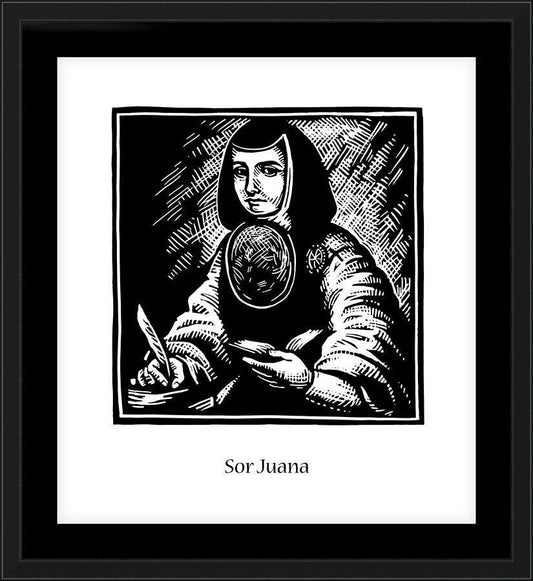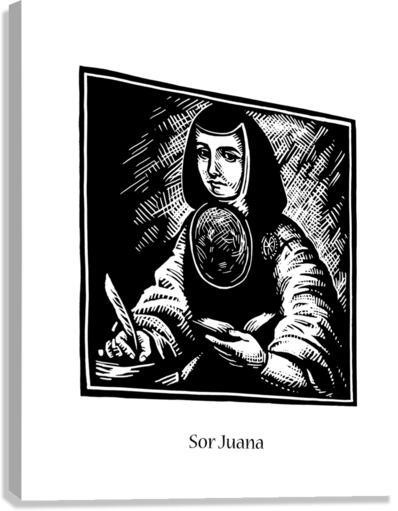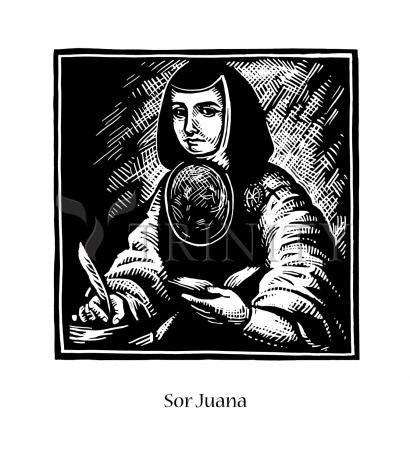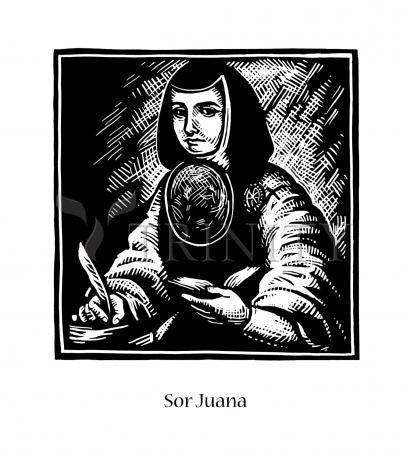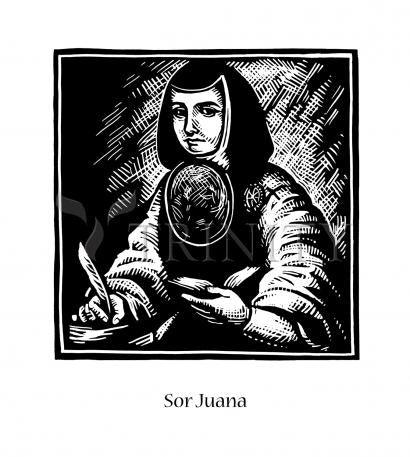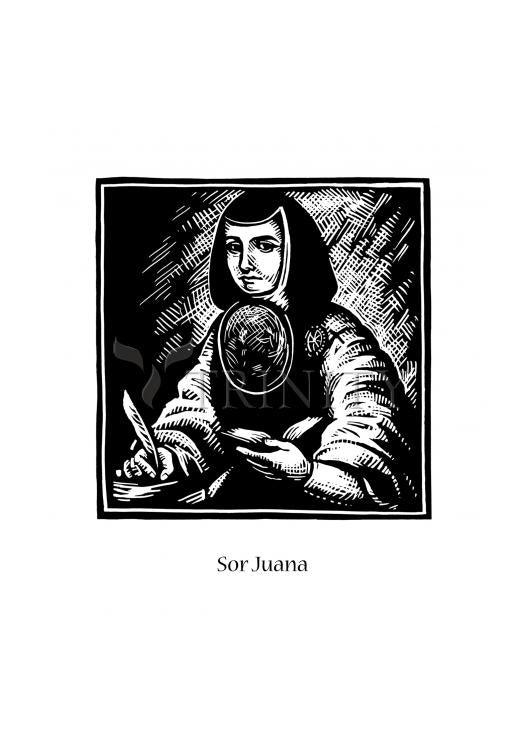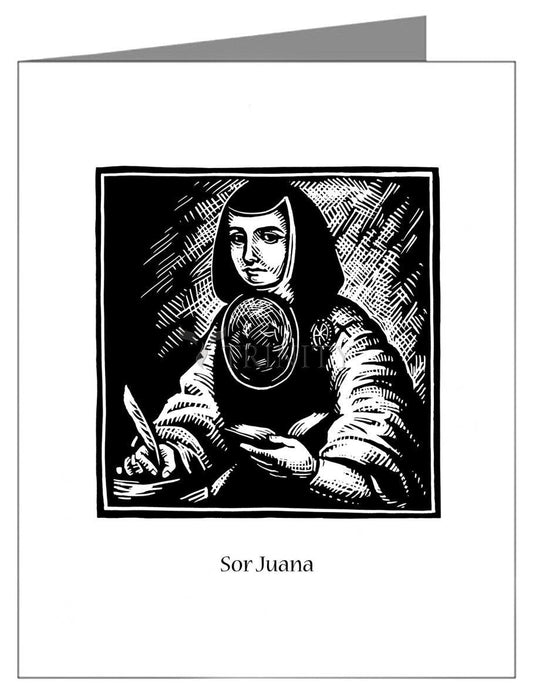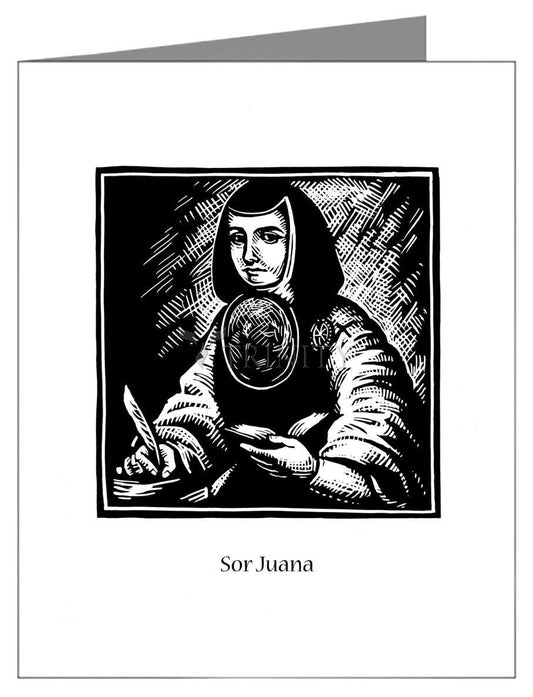ARTIST: Julie Lonneman
ARTWORK NARRATIVE:
Juana Inés de la Cruz's intelligence and scholarship became known throughout the country during her teen years. She began her life as a nun in 1667 so that she could study at will. After taking her vows, Sor Juana read tirelessly and wrote plays and poetry, often challenging societal values and becoming an early proponent of women's rights. Sor Juana is heralded for her Respuesta a Sor Filotea, which defends women's rights to educational access, and is credited as the first published feminist of the New World. She died in Mexico in 1695.
“I don't study to know more, but to ignore less.”
–Sor Juana Inés de la Cruz
Read More
Early feminist Sor Juana was a 17th century poet, nun and scholar. With a remarkable aptitude for everything from Latin to geometry, she took her novitiate at the age of 16. As a nun she was free to study the more than 4000 books she collected in her cell " one of the largest private libraries in the New World. Her poetry and plays were widely read and brought her renown in Europe and Spanish America for celebrating the "magicas infusions (magical infusions)" of Native American cultures " all of which earned her a reputation as one of the greatest lyric poets of the Age.
In her work as in her life, she acknowledged being "en dos partes dividida (divided in two parts)," torn between passion and reason, sensuality and religious devotion. Contemporaries gossiped about her liaisons with other nuns (and the wife of the viceroy of the Court of Mexico City), but it was her audaciously brilliant verse, and the threat to traditional authority it posed, that proved her undoing. In her most famous work Reply to Sor Filotea she defended the intellectual rights of women and condemned the Church for helping keep women uneducated.
As a result of challenging societal values and ecclesiastical dogma she was officially censured. In 1694 she signed documents that may have been conscious rejections of her past life and donated many of her books to help the suffering poor in the city. She died the following year at the age of 43, while nursing her sister nuns in the midst of an epidemic. Nobel Prize winning author and poet Octavio Paz said of her poetry that it was the most important produced in the Americas until the advent of Emily Dickinson and Walt Whitman. Sor Juana " who has been pictured on Mexico's 200-peso note " has been an inspiration and a focus of study for centuries. Her former convent is now the University of the Cloister for Sor Juana.



